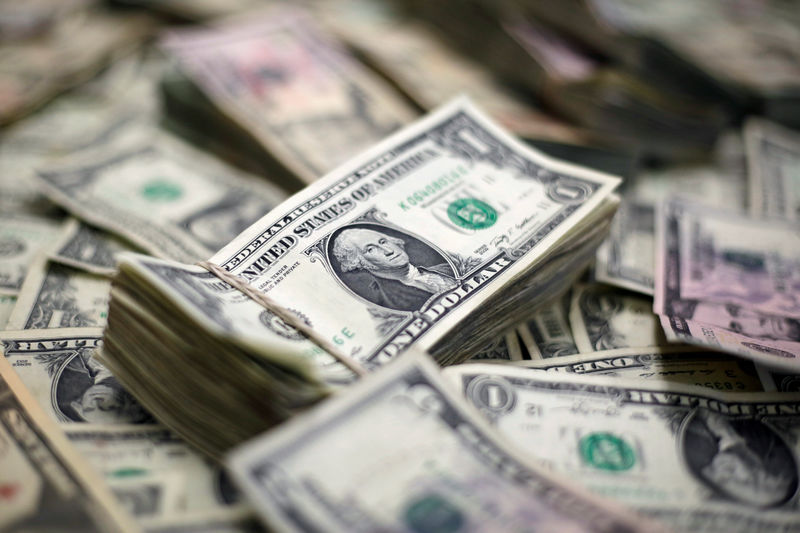Investing.com – The U.S. dollar stabilized Monday, holding on to gains after Friday’s strong jobs report to start a week that includes key inflation data and minutes from the Federal Reserve’s latest meeting.
At 04:00 ET (08:00 GMT), the Dollar Index, which tracks the dollar against a basket of six other currencies, was trading marginally lower at 102.247. The stock rose 0.5% to a seven-week high on Friday, posting a gain of more than 2% for the week, the biggest gain in two years.
Payrolls boost the dollar
US growth has allayed fears of a US economic slowdown and promoted the idea that the Fed does not need to cut rates sharply to support the economy and boost the dollar.
Traders were seen largely wiping out bets on a further 50 basis point cut at the next Fed meeting, pricing in a more than 90% chance of a 25 basis point cut, CME Fedwatch showed.
The focus this week is on speeches from a slew of Fed officials, more inflation data and the minutes of the Fed’s September meeting. The Fed had cut rates by 50 basis points at the meeting and signaled the start of an easing cycle, although it still said future rate cuts will depend on data.
“Friday’s runaway US jobs report led to an aggressive repricing of interest rate expectations that we thought would have materialized within a few weeks,” ING analysts said in a note.
“Markets no longer have a pretext to see through Fed Chair Jerome Powell’s opposition to 50 bp cuts and are finally in line with Dot Plot projections: 25 bp cuts in November and December.”
The safe dollar has also received a boost from unrest in the Middle East, with Israel bombing Hezbollah targets in Lebanon and the Gaza Strip on Sunday, ahead of Monday’s one-year anniversary of the Oct. 7 attacks that sparked the war.
Weak German data hits the euro
In Europe, the euro fell 0.1% to 1.0965, with the euro weakening after falling 5.8% from August, another illustration of the economic difficulties facing the eurozone’s largest economy.
for August will appear later in the session and should show how consumers are faring in these difficult times.
ECB chief economist Philip Lane and board members Piero Cipollone and Jose Luis Escriva are all due to speak later Monday and are likely to follow President Christine Lagarde’s lead in signaling a strong pace of further easing.
fell slightly to 1.3113, after falling 1.9% last week, the steepest drop since early 2023.
Huw Pill, chief economist at the Bank of England, said on Friday the central bank should take only gradual action in cutting interest rates, a day after Governor Andrew Bailey said the BoE could move more aggressively to lower borrowing costs.
Doubts about the BoJ interest rate hike
fell 0.3% to 148.22, paring earlier gains after the pair rose to its highest level since mid-August.
The yen was hit by growing doubts about the Bank of Japan’s ability to continue raising rates in the coming months, especially amid uncertainty about the upcoming Japanese general election.
remained largely unchanged at 7.0176, with Chinese markets still closed as the country celebrates Golden Week.


